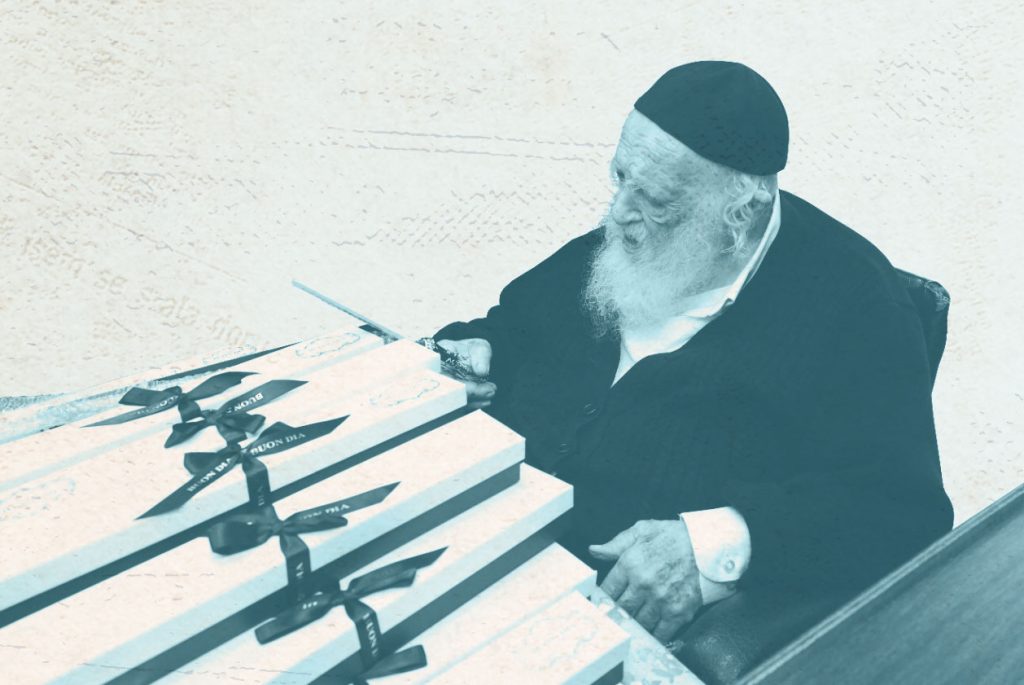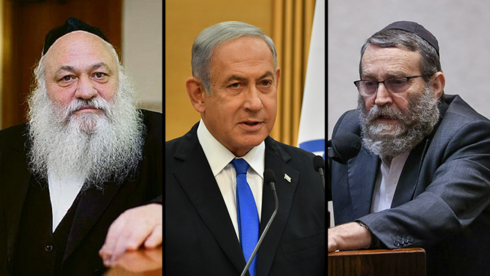GO INTO ROSH HASHANA WITH THE PROMISE OF MARAN SAR HATORAH
In previous years, year after year, Maran Sar HaTorah HGR' Chaim Kanievsky zt"l, took the responsibility upon himself to say that whoever would give $355, the gematria of "shanah," or "year," - "Certainly they will remove from him any unfavorable decrees and he will come out meritorious in judgment."
Of course, Rav Chaim is no longer alive, but we are told that Rav Yitzchak Zilberstein, Rav Shimon Gala'i, and Rav Shraga Steineman sat as a Beis Din and decided that it's still true:
"Tzaddikim are greater after their deaths than they were during their lifetimes, and the merit of Maran ztvk"l from Above will certainly influence that … his decree to be found innocent in judgment will be fulfilled in Kupat Ha'ir donors, also in the year 5783."
I have to say that I found this rather striking. It was always my understanding that traditional Judaism relates a person's fate to their merits and sins. Certainly, this fate can be changed, but that requires an actual change in the person - i.e. teshuva. Now, apparently, no teshuva is required - it just takes $355 to be assured of a meritorious judgment. I know many people who would pay $355 to avoid having to go to shul and davven with sincere kavanah!
Rav Chaim's promise seems to be written in his actual handwriting. Still, I think that there is room to judge him favorably and presume that such a rash promise reflects the fact that, as his sons noted, for the last ten years of his life he was not at the height of his mental acumen.
But, looking at his handwritten letter, there's something else odd going on. Rav Chaim wrote about giving 355 shekels, not 355 dollars!
Kuppat Ha'Ir adds a parenthetical explanation that the segulah only works with 355 of the currency of the country that you're living in. But what on earth is the justification for that? And they should still mention that one can give either 355 dollars or 355 shekels, depending on where you live - after all, the website is read by many people in Israel. And does this mean that if you're in Mexico, you can give 355 pesos - about 17 dollars - and get salvation? And if you give an extra 355 of your currency, can you get salvation for someone else? I have a fifty billion Zimbabwe dollar note - what kind of salvation can I get for Klal Yisrael with that?!
Not to be outdone with the magic Rav Chaim segulos, the outreach organization Hidabroot offers some very special for their elite $1800 donors. It's not just a silver segulah knife - it's a silver segulah knife that has been blessed by Rav Chaim. A rabbinic colleague asked me about this. Blessing objects is a prevalent phenomenon in Christianity, but is there any source in Judaism for such a thing?I discovered that this question has already been asked. In Birkat HaMazon, we ask that Hashem blesses the table from which we ate. Someone accordingly asked Rav Benzion Mutzafi how one can bless an object. Rav Mutzafi responded that indeed one cannot bless an object. (If your table breaks and you get a new one, you haven't lost the blessing!) It's not the actual table that is being blessed; the prayer uses the word "table" to represent a person's conduit of sustenance from God.
But this explanation means that the blessing is not connected to an object. And so surely blessing a knife has no basis in Jewish tradition and is a Christian custom? I suggested to my colleague that he poses this question on Hidabroot's "Ask the Rabbi" page.
Meanwhile, at the Biblical Museum of Natural History, we don't offer our $1800 donors something that has been blessed by others; instead, we give them something that they can make a beracha on. It's been very well received - although there was one person who asked how much money he has to give us in order for us not to send him a jar of locusts....
If you'd like to subscribe to this blog via email, use the form on the right of the page, or send me an email and I will add you.















